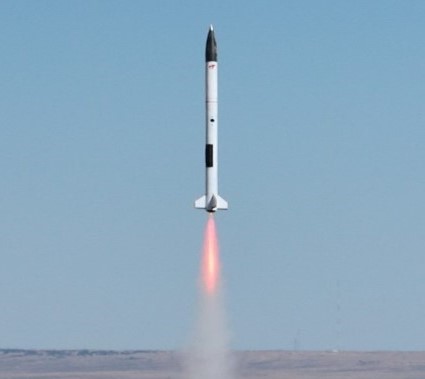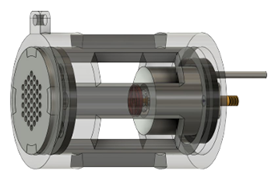
Introduction
To support the UAE’s ambition to become a leading spacefaring nation, the Sharjah Academy for Astronomy, Space Sciences, and Technology (SAASST) has established the Rocket Propulsion and Exhaust Systems Laboratory (RPESL). This cutting-edge Laboratory aims to build national capabilities in the development, testing, and deployment of small propulsion technologies, aligned with the future UAE Spaceport vision.
The laboratory serves as a strategic hub for innovation in solid, liquid, and electric propulsion systems, each offering unique advantages for various mission profiles. By leveraging both legacy propulsion technologies and next-generation systems such as electric propulsion, the lab fosters research and education at the intersection of academia and industry. It will empower the University of Sharjah and UAE universities more broadly to pioneer space applications, launch small-scale experimental missions, and drive regional leadership in the MENA aerospace sector.

Lab Objectives
- Advance Research in Propulsion Technologies: Advance knowledge and investigate traditional and advanced propulsion systems solid, liquid, and electric through experimental and simulation-based research.
- Develop Small-Scale Propulsion Systems: Design and fabricate rocket engines carrying small payloads using solid, liquid, or electric propulsion technologies.
- Advance Electric Propulsion: Explore efficient, low-thrust EP systems for CubeSats and long-duration space missions, contributing to next-generation propulsion advancements
- Build Human Capital: Training Emirati students, researchers, and engineers in propulsion system development, contributing to research-intensive, interdisciplinary projects in space propulsion systems.
Research Projects

Miniaturized Micro Ion Thruster:
Integration and Performance Analysis for CubeSat Application

Miniaturized Micro Ion Thruster:
Integration and Performance Analysis for CubeSat Application
This research project presents the design, development, and performance evaluation of a miniaturized micro ion thruster specifically tailored for CubeSat missions. The article begins with the detailed design and fabrication of a micro ion thruster optimized for CubeSat applications. The thruster utilizes a state-of-the-art micro-fabrication process to achieve a compact form factor while maintaining high performance. A series of comprehensive tests and simulations are conducted to assess the thruster's performance. This includes thrust measurements, specific impulse characterization, and efficiency assessments under various operating conditions. The ionization chamber, conductive grids, and accelerator stages are engineered to minimize mass, size, and power consumption while maintaining sufficient thrust and specific impulse. Thus, the system will demonstrate promising performance characteristics and indicate a higher thrust-to-weight ratio for CubeSat missions.
